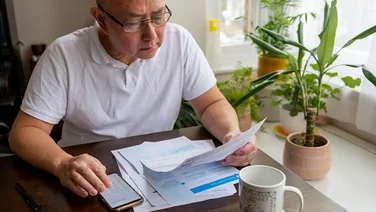Get Free Solar Panel Quotes
Find out how much solar panels would cost you
Do you need solar panels for your home or business?
Fill in our form - Get a free quote - Start saving on energy bills
Why get solar panels?
- Generate free, green electricity
- Reduce your electricity bill by up to 64%
- Get paid for what you don't use
As featured in:



News
The latest news, analysis, guides and opinion.

Energy companies pull fixed tariffs amid US-Iran conflict
A lot of fixed tariffs are now off the market as the US-Iran continues to push gas prices up, with the energy price cap set to jump
-
 Can solar energy power a human civilisation on the Moon? Solar energy could one day be helping to power a £94.3 billion economy on the Moon
Can solar energy power a human civilisation on the Moon? Solar energy could one day be helping to power a £94.3 billion economy on the Moon -
 UK’s first geothermal plant to power 10,000 homes Around 10,000 homes will be powered by clean energy from the earth after the UK’s first geothermal power plant went online.
UK’s first geothermal plant to power 10,000 homes Around 10,000 homes will be powered by clean energy from the earth after the UK’s first geothermal power plant went online. -
 Grant boost covers almost half the cost of installing EV chargers Renters, flat owners, homeowners without driveways and businesses will soon be able to cut the cost of installing an electric vehicle (EV) charge point by half thanks to the government increasing the amount they can receive from grants.
Grant boost covers almost half the cost of installing EV chargers Renters, flat owners, homeowners without driveways and businesses will soon be able to cut the cost of installing an electric vehicle (EV) charge point by half thanks to the government increasing the amount they can receive from grants. -
 Volvo’s new EX60 EV will travel 503 miles on a single charge Volvo’s latest EX60 electric SUV arrives in UK showrooms this summer, and is set to be the UK’s longest-range electric vehicle (EV).
Volvo’s new EX60 EV will travel 503 miles on a single charge Volvo’s latest EX60 electric SUV arrives in UK showrooms this summer, and is set to be the UK’s longest-range electric vehicle (EV). -
 US-Iran conflict could see energy bills jump to £2,500 a year Household energy bills could rise as wholesale prices balloon due to the US-Israel and Iran conflict and the closing of the Strait of Hormuz.
US-Iran conflict could see energy bills jump to £2,500 a year Household energy bills could rise as wholesale prices balloon due to the US-Israel and Iran conflict and the closing of the Strait of Hormuz. -
 Energy Performance Certificates explained Find out everything you need to know about EPCs, including how they work, what they include, and how you can get your hands on one.
Energy Performance Certificates explained Find out everything you need to know about EPCs, including how they work, what they include, and how you can get your hands on one. -
 Ofgem: Energy price cap to drop 7% from April Energy bills for a typical household will drop by £117 or 7% for the average dual fuel household from 1 April to 30 June 2026, energy regulator Ofgem has announced.
Ofgem: Energy price cap to drop 7% from April Energy bills for a typical household will drop by £117 or 7% for the average dual fuel household from 1 April to 30 June 2026, energy regulator Ofgem has announced. -
 Aira says more tariff options can cut bills by 90% Aira launches tariff-agnostic optimisation capability for heat pumps and home energy systems to work across hundreds of energy tariffs
Aira says more tariff options can cut bills by 90% Aira launches tariff-agnostic optimisation capability for heat pumps and home energy systems to work across hundreds of energy tariffs -
 The Spark Gap: Why is electricity more expensive than gas? Ever wondered why your electricity bills have gone through the roof, whilst your gas bills have only risen a bit? We're here to tell you why.
The Spark Gap: Why is electricity more expensive than gas? Ever wondered why your electricity bills have gone through the roof, whilst your gas bills have only risen a bit? We're here to tell you why.

